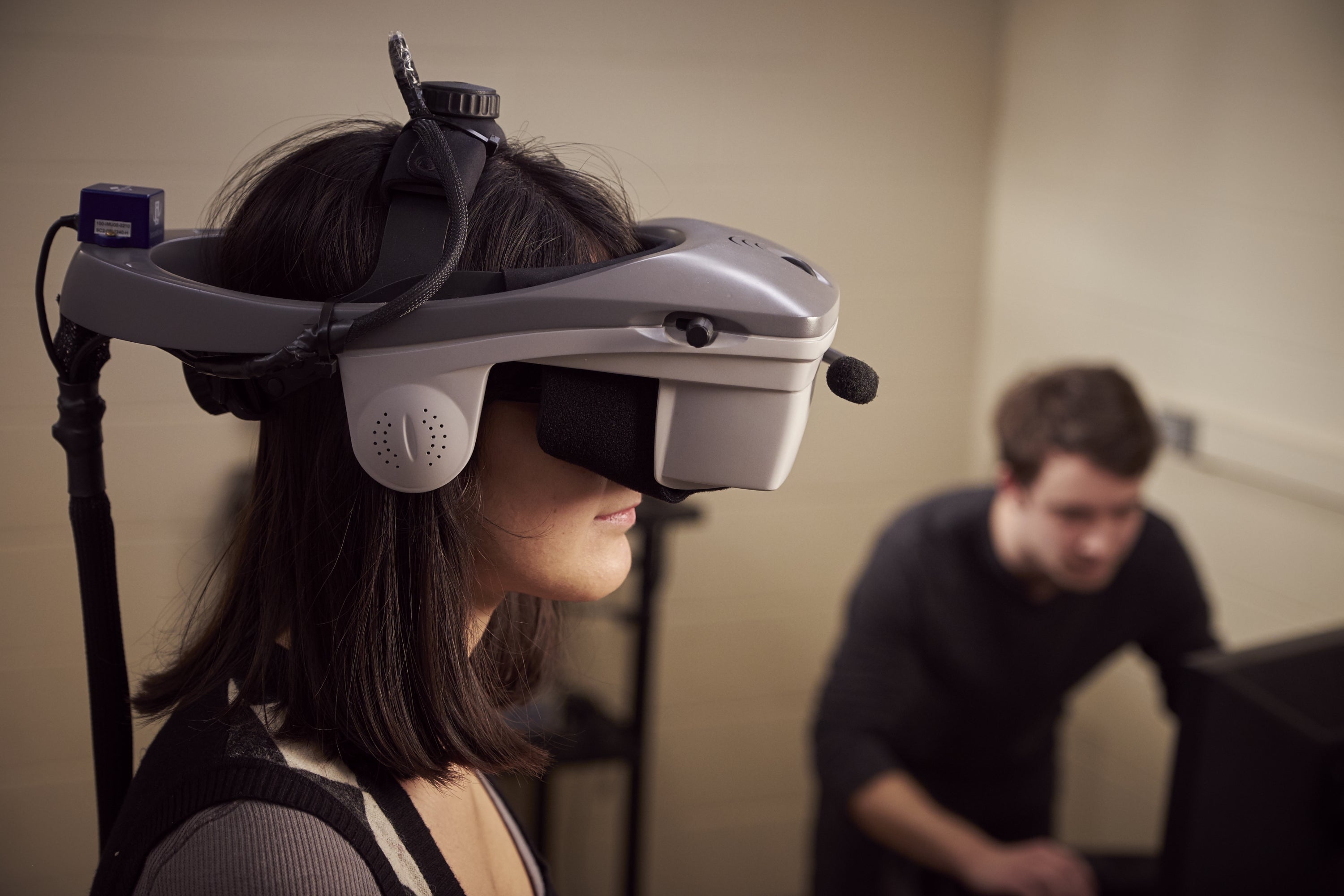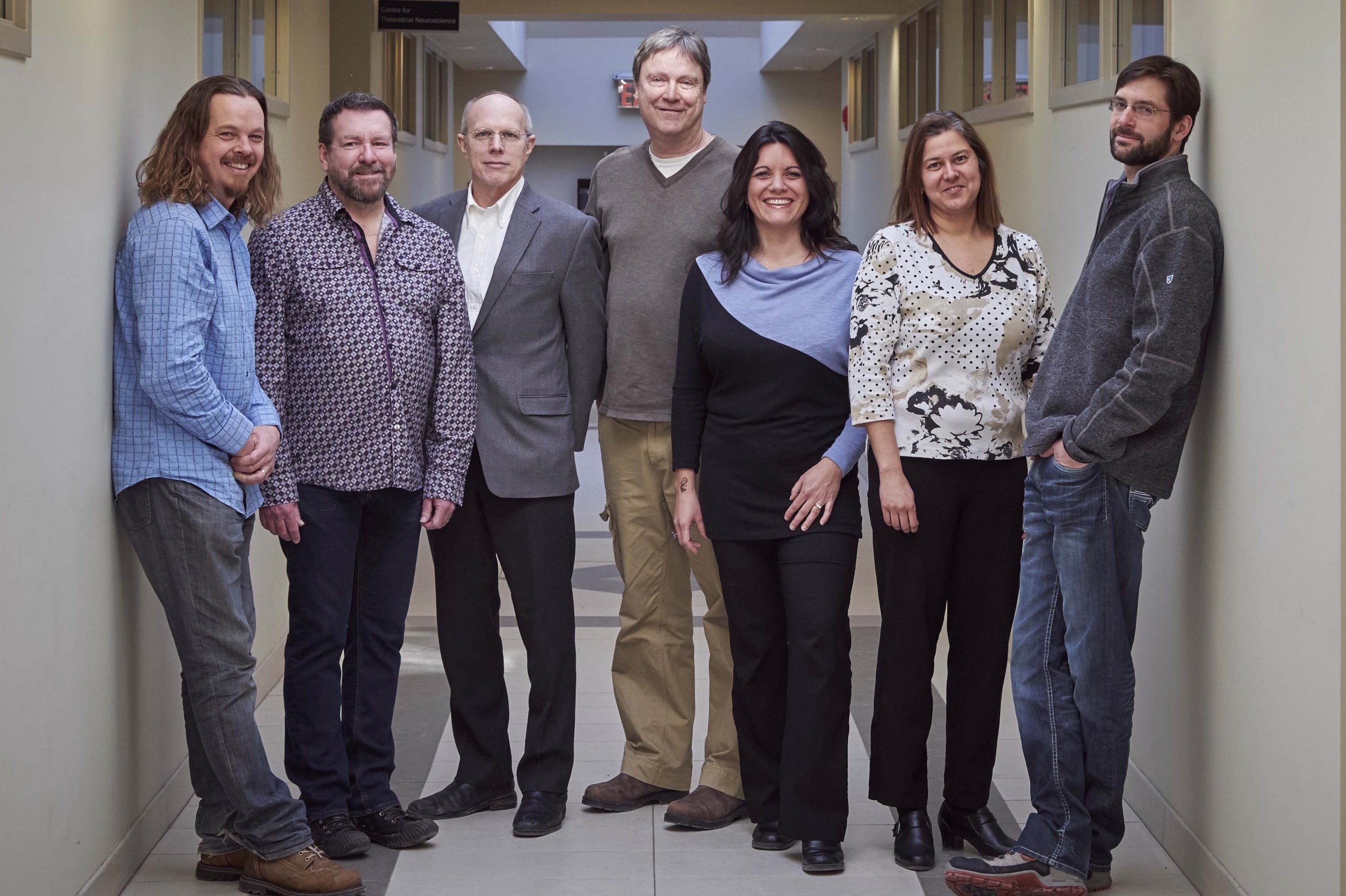Students enrolled in the Cognitive Neuroscience Psychology program will gain a wide variety of experiences in conducting research and presenting their research findings. This experience will be gained by working in laboratories on thesis research and other projects, as well as through courses taught by our faculty.
In the Cognitive Neuroscience area, the applicant is typically first admitted to the MA program with the expectation that the student will continue to the PhD.
Cognitive neuroscience is the study of how the brain enables the mind. Brain science explores how individual neurons operate and communicate to form complex neuronal architectures that comprise the human brain. Cognitive science uses the experimental methods of cognitive psychology and artificial intelligence to create and test models of higher-level cognition such as thought and language. Cognitive neuroscience bridges these two domains. It maps higher-level cognitive functions to known brain architectures and known modes of neuronal processing.
In our Cognitive Neuroscience graduate program, students use a wide variety of research techniques. Event-related potentials (ERP) are used to study how different populations of neurons respond on a millisecond-to-millisecond basis as they process different types of information (e.g., looking at a face). We use functional magnetic imaging (fMRI) to see which areas of the brain are preferentially activated when processing different types of information or engaging in different types of behaviour. We use virtual reality to understand how we navigate within our world. We use cognitive psychology tasks to better understand patients with brain damage, and how the healthy brain changes as we age. We use cognitive techniques to explore how the brain changes when our mind’s wander and to explore differences in brain function between different groups of people (from problem gamblers, to those with synaesthesia).

Our renowned faculty and their graduate students in cognitive neuroscience are excited to explore the intricacies of brain and mind and are beginning to peel back the curtain to expose the inner workings of who we are.
Cognitive Neuroscience Core Faculty

UW Cognitive Neuroscience Psychology Faculty (from left to right): Professors James Danckert, Colin Ellard (Professor Emeritus), Britt Anderson, Michael Dixon (Professor Emeritus), Roxane Itier, Myra Fernandes, and Daniel Smilek.
Britt Anderson*
James Danckert*
Myra Fernandes*
Roxane Itier* Area Head
Daniel Smilek*
*May be accepting new graduate students for Fall 2026